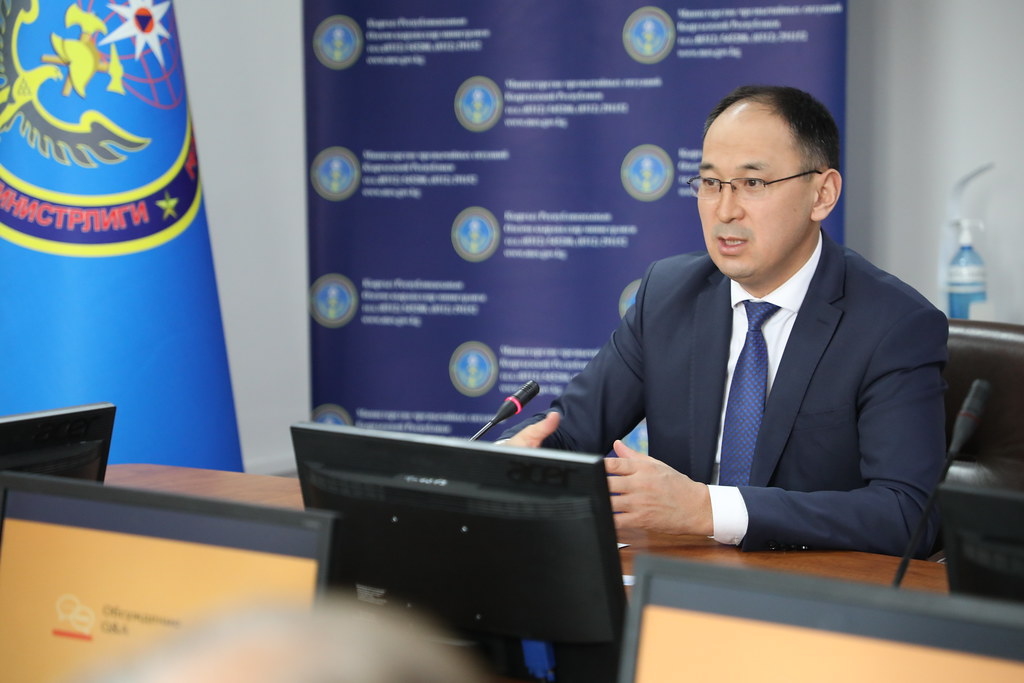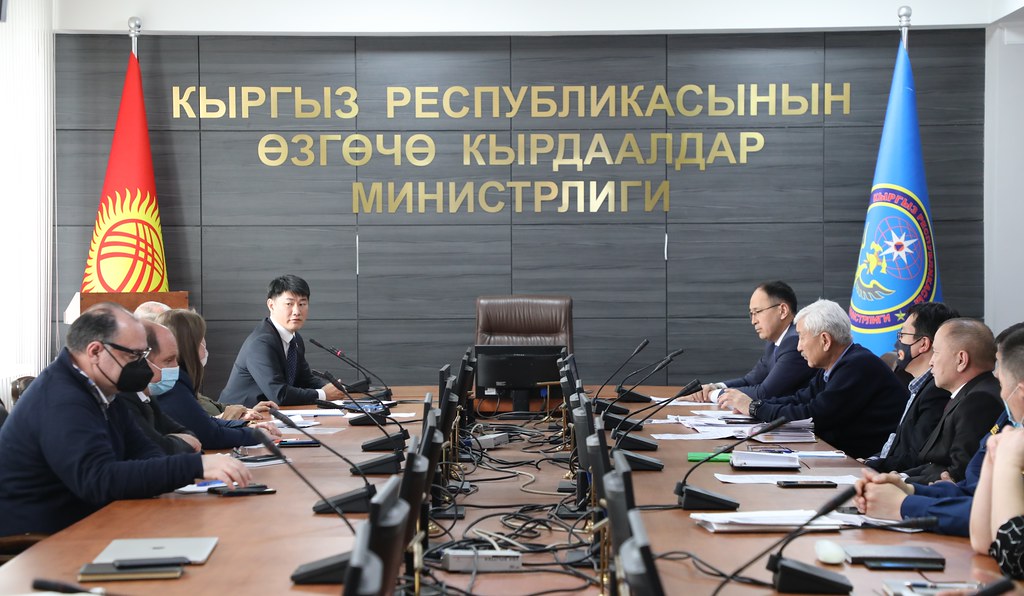At the presentation of the preliminary findings of the diagnosis of country systems to manage disaster risk, on 4 March 2022, the First Deputy Minister of Emergency, Mr. Mambetov, highlighted that the government priority is a gradual shift from civil protection to disaster risk management. Mr. Mambetov further noted that the strengthening of the National Platform for disaster risk reduction and joining the International Search and Rescue Advisory Group (INSARAG) are also important for the country.
The diagnosis of the disaster risk management system at national and local level was supported by the UN system and the CADRI Partnership (Capacity for Disaster Reduction Initiative), an alliance of humanitarian and development partners working to strengthen disaster risk reduction capacities.
The findings and recommendations were the outcome of consultations with 29 national organizations, 13 local organizations, five private sector organizations and four development partners. The consultations involved, amongst others, the Ministry of Agriculture, Ministry of Education and Science, Ministry of Labor, Social Welfare and Migration. Local authorities were also consulted in Osh, Issyk-Kul and Alamudun districts, to assess the level of capacities to reduce local disaster risk.
The capacity-diagnosis was a joint effort between the government and the UN Country Team. The Ministry of Emergency designated 12 representatives to lead and support the diagnosis process over a two-week period. The diagnosis was supported by a multi-disciplinary team of 11 international experts from UNDP, UNICEF, FAO, UNFPA, UNDAC, and 15 experts from the UN Country Team in the Kyrgyz Republic including FAO, OCHA, UNDP, UNICEF, WFP, UNFPA, WHO.
Mr. Stanislav Kim (UNDP), who led the mission, stressed the importance “to change paradigm from being hazard-oriented to risk-oriented and transfer some of the responsibilities for disaster risk management from the Ministry of Emergency to the sector ministries”. He also emphasized the need to "strengthen coordination of disaster risk management efforts across all levels for increased efficiency".
The preliminary mission findings and recommendations will be presented to the government in April 2022 with the hope that the agreed recommendations will inform the national policy documents and the UN-Government cooperation framework for the next 5 years. Mr. Munawwar Alam, Team Leader in the United Nations Resident Coordinator Office, highlighted that the findings and recommendations from the mission will guide the interventions of the UN Agencies and support the efforts of the government to advance in the Disaster Risk Reduction agenda in the country.















